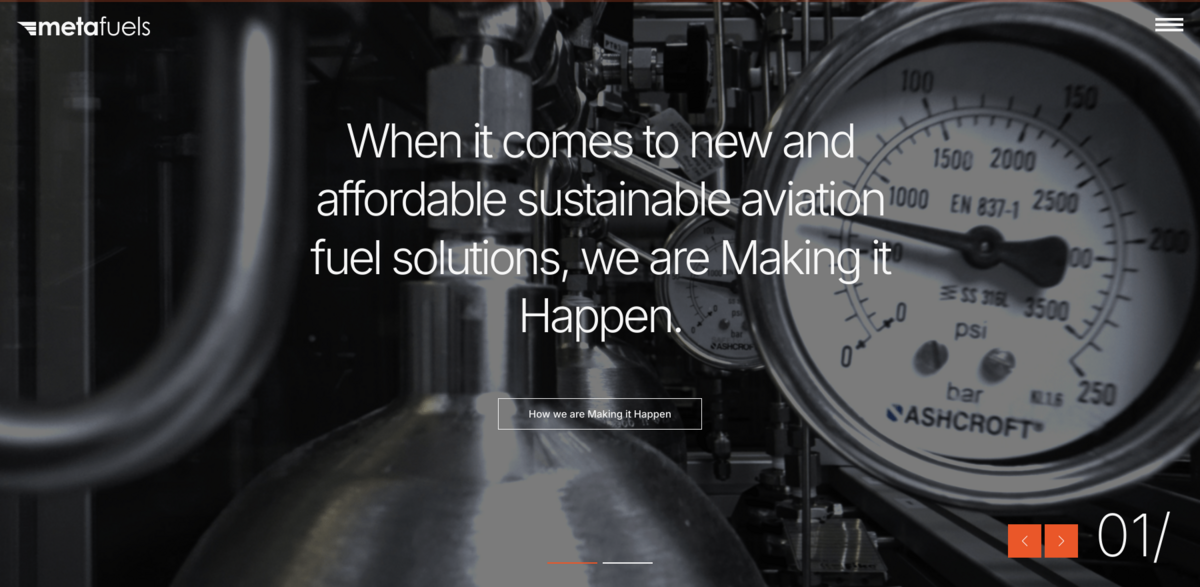What is the Metafuels Project?
When it comes to new and affordable sustainable aviation fuel solutions, Metafuels is making it happen. This innovative project is all about powering the future of aviation with sustainable aviation fuel (SAF) — offering affordable air travel without the carbon footprint. The three founders behind Metafuels have decades of experience in the energy sector and share a bold ambition: to develop new and affordable sustainable technology solutions that can transform the aviation industry.
Main Benefit: Revolutionizing Sustainable Aviation Fuel Production
Metafuels introduces aerobrew, a groundbreaking route to large-scale production of e-SAF (electro-fuel sustainable aviation fuel). Here are some key figures and facts that highlight its potential:
- SAF market valued at $72.1 million in 2020, projected to reach $6.26 billion by 2030.
- The International Energy Agency (IEA) projects that by 2050, 75% of the jet fuel market will be SAF — around 300 billion litres annually.
- aerobrew technology offers high selectivity and yields, overcoming scale-up challenges and high costs of traditional Fischer-Tropsch methods.
- Compatible with biogenic routes using renewable cellulosic biomass like wood and miscanthus, avoiding competition with food crops.
- Potential lifecycle carbon reduction of up to 95% compared to traditional jet fuel.
How Does Aerobrew Work?
The aerobrew process is a proprietary technology developed in collaboration with the world-renowned Paul Scherrer Institut. It converts green methanol into sustainable aviation fuel, enabling airlines to offer affordable, low-carbon flights. The process harnesses CO2 captured through direct air capture and biogenic methods, combined with green hydrogen produced via water electrolysis powered by renewable electricity. These elements form green methanol, which then undergoes the aerobrew process to become SAF.
Scaling Up: From Pilot to Pioneer Projects
After successful pilot plant trials, Metafuels is now scaling up aerobrew technology. The goal? To reach plant capacities of 1,000 tons of SAF production per day by the mid-2030s. The Pioneer Projects are the first step, including:
- Project Turbe at the Port of Rotterdam: Starting with 10 tons per day in 2028, scaling to 100 tons per day by 2031.
- Project Pizol in Denmark: Partnering with European Energy’s sustainable methanol project, aiming for 10 tons per day by 2029.
- Project Scaletta in Spain: The largest project, targeting 100 tons per day by around 2032.
Each plant can process bio-methanol or e-methanol interchangeably, allowing flexibility to produce bio-SAF, e-SAF, or both depending on market demand.
Innovative Technology Behind the Scenes
The secret sauce lies in the methanol-to-jet process, especially the second step: Olefins Oligomerisation (OO). Working closely with scientists at the Paul Scherrer Institut, Metafuels developed a new catalytic system using innovative nanomaterials. These catalysts favor SAF production with ultra-high selectivity, minimizing unwanted by-products. This breakthrough was demonstrated successfully at the pilot plant, delivering the ‘missing piece’ of the methanol-to-jet puzzle and producing the first aerobrew SAF product.
Project Impact: Supporting Global Sustainability Goals
- SDG 7: Affordable and Clean Energy – by promoting renewable fuel production.
- SDG 9: Industry, Innovation, and Infrastructure – through pioneering new catalytic technologies.
- SDG 12: Responsible Consumption and Production – by using sustainable biomass and green methanol.
- SDG 13: Climate Action – enabling up to 95% lifecycle carbon reduction in aviation fuel.
- SDG 17: Partnerships for the Goals – collaborating with research institutes and energy partners worldwide.
Looking Ahead: The Future of Sustainable Aviation
Metafuels’ aerobrew demonstration plant, located at the Paul Scherrer Institute, is a crucial step toward commercial success. Operating from mid-2025, this ‘tank-to-tank’ facility mirrors the design of future commercial plants and serves as a testbed for catalyst improvements and operational optimization. It also provides essential training for operators, ensuring readiness for large-scale production. With this solid foundation, aerobrew technology is set to play a key role in helping the aviation industry meet carbon reduction targets — all while keeping air travel affordable and accessible.






















